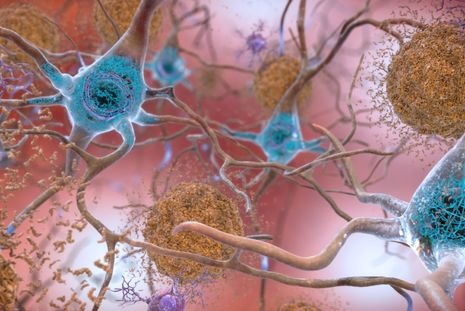Health
Science Questions Validity of Repressed Memories in Therapy

The concept of repressed memories, once popular in therapeutic practices, is facing increasing scrutiny from the scientific community. Recent studies suggest that memories believed to be repressed may actually be false memories, raising concerns about the implications for individuals undergoing therapies such as hypnotherapy.
In the late 20th century, the notion of repressed memories gained significant traction, particularly during the 1990s. This period saw a surge in claims of sudden recollections of traumatic events. Many people began to believe that memories of childhood trauma could be accessed through specific therapeutic techniques. Hypnotherapy, in particular, was promoted as a way to delve into the subconscious mind, allowing individuals to recover lost memories.
The idea of repressed memories can be traced back to the theories of Sigmund Freud, particularly his seduction theory. Freud posited that traumatic memories were stored in the unconscious mind to prevent psychological distress. He suggested that these memories could later resurface, causing various psychological issues. However, Freud later abandoned this theory when he recognized that many of his patients exhibited symptoms without evidence of actual trauma.
Hypnotherapy aims to help individuals access these hidden memories, but experts caution that this practice can be problematic. When a therapist suggests a memory during a session, it can lead to the creation of vivid but inaccurate recollections. This phenomenon is known as confabulation, where individuals may become convinced of events that never occurred, potentially causing further psychological harm.
In 1989, a notable case highlighted the dangers of relying on repressed memories in legal contexts. Eileen Franklin claimed to have suddenly remembered witnessing her father murder her best friend two decades earlier. Although there was no physical evidence to support her accusation, her father, George Franklin, spent six years in prison before being pardoned. Eileen’s credibility was called into question only after she made another accusation that was disproven by DNA evidence.
Neuroscience research provides insight into memory formation and retrieval, challenging the validity of repressed memories. Each experience we have activates specific groups of neurons, forming a “memory trace.” When triggered, this network allows us to recall past events. However, scientists have found no physiological basis for the concept of repressed memories. If a memory appears to be inaccessible, it may not have been properly processed or stored in the first place.
Stressful situations can inhibit memory formation. For instance, the fight-or-flight response can disrupt the brain’s ability to create lasting memories. Similarly, alcohol consumption can impair memory retention, leading to gaps that individuals may mistakenly interpret as repressed memories.
From a psychological perspective, traumatic experiences tend to result in more vivid memories rather than the loss of them. For those suffering from post-traumatic stress disorder (PTSD), intrusive recollections and flashbacks are common symptoms. While individuals with PTSD may experience difficulties with memory recall, this differs from the notion of repressed memories that are supposedly recoverable through specific therapeutic techniques.
Current understanding of memory processes indicates that recalling an event can make the memory unstable and susceptible to modification. This malleability allows for the insertion of new details, potentially distorting original memories and creating the illusion of repressed memories.
While hypnotherapy remains a controversial practice, many practitioners have shifted their focus to enhancing positive thought patterns, stress reduction, and habit change, rather than attempting to recover repressed memories. Given the delicate nature of memory, caution is advised when approaching the subject.
In conclusion, the concept of repressed memories appears increasingly unreliable. As scientific understanding evolves, it may be beneficial for therapeutic practices to prioritize methods that do not risk the creation of false memories, allowing individuals to engage with their mental health in safer, more effective ways.
-

 World2 days ago
World2 days agoCoronation Street’s Shocking Murder Twist Reveals Family Secrets
-

 Entertainment4 months ago
Entertainment4 months agoKate Garraway Sells £2 Million Home Amid Financial Struggles
-

 Entertainment3 months ago
Entertainment3 months agoAnn Ming Reflects on ITV’s ‘I Fought the Law’ Drama
-

 Health3 months ago
Health3 months agoKatie Price Faces New Health Concerns After Cancer Symptoms Resurface
-

 Entertainment3 weeks ago
Entertainment3 weeks agoCoronation Street Fans React as Todd Faces Heartbreaking Choice
-

 World3 weeks ago
World3 weeks agoBailey Announces Heartbreaking Split from Rebecca After Reunion
-

 World5 days ago
World5 days agoKevin Sinfield Exceeds Fundraising Goal Ahead of Final Marathons
-

 Entertainment3 months ago
Entertainment3 months agoCoronation Street’s Carl Webster Faces Trouble with New Affairs
-

 Entertainment4 days ago
Entertainment4 days agoTwo Stars Evicted from I’m A Celebrity Just Days Before Finale
-

 Entertainment3 months ago
Entertainment3 months agoWhere is Tinder Swindler Simon Leviev? Latest Updates Revealed
-

 Entertainment4 months ago
Entertainment4 months agoMarkiplier Addresses AI Controversy During Livestream Response
-

 Science2 months ago
Science2 months agoBrian Cox Addresses Claims of Alien Probe in 3I/ATLAS Discovery








